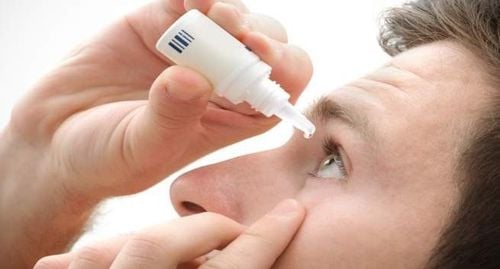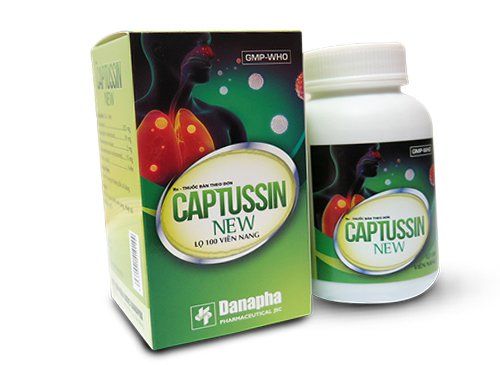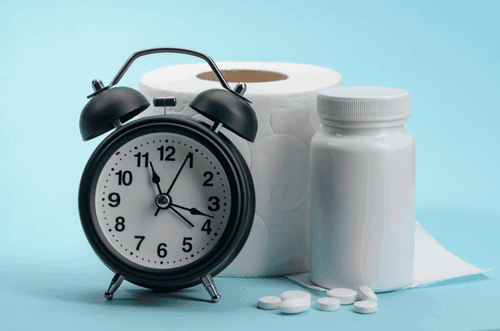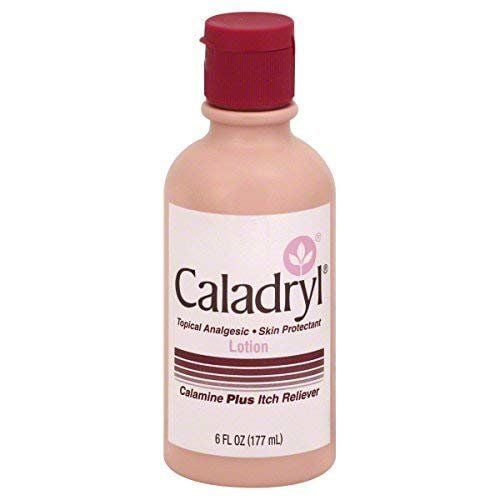This is an automatically translated article.
Besoramin belongs to the group of anti-allergic drugs. The drug is indicated for the treatment of hypersensitivity cases of various etiologies. Let's find out the following article about Besoramin's effects and some notes when using the drug to ensure safety and effectiveness for patients.1. What is Besoramin?
Besoramin contains the main ingredient Betamethasone 0.25mg, Dexchlorpheniramine Maleate 2mg and other excipients just enough for 1 tablet provided by the manufacturer. The dosage form of the drug is in the form of tablets, the packaging is in the form of a box of 1 bottle of 500 tablets.
2. What are the effects of Besoramin?
Besoramin is indicated for treatment in the following cases:
Support for the treatment of severe cases in the respiratory tract, skin and eye allergies, as well as inflammatory eye disorders. Supportive treatment in cases where the patient needs additional systemic corticosteroid therapy. In addition, Besoramin is contraindicated in the following cases:
Patients who are allergic to the active ingredients Betamethasone and Dexchlorpheniramine Maleate or other excipients contained in the drug. Children under 6 years of age, infants and premature infants. Patient is taking monoamine oxidase (MAO) inhibitors. The patient has a systemic fungal infection. The patient is suffering from gastric and duodenal ulcers. The patient has narrow-angle glaucoma. Patients with prostate enlargement or bladder neck obstruction.
3. Dosage and how to use Besoramin
Besoramin is made in tablet form, so patients take it orally. The drug should be swallowed whole and should not be broken, chewed or crushed before use. Patients should take the medicine at the time of eating and at bedtime.
The following is the dose of Besoramin:
Adults and adolescents over 12 years old:
Use with a starting dose of 1 - 2 tablets x 4 times/day. The maximum dose is only 8 tablets per day. Children from 6 to 12 years old:
Use with a starting dose of 1/2 tablet x 3 times/day. The maximum dose is only 8 tablets per day. Note: The above dosage is for reference only by the manufacturer. Depending on the health status and different medical conditions, the doctor will base on that to make the appropriate appointment. Therefore, patients should only use the drug when prescribed by a doctor and instructed to use it properly.
4. Besoramin side effects
Doctors always consider between the benefits that Besoramin brings to the patient and the possible risk of side effects to prescribe the appropriate medication.
This drug is relatively well tolerated, there may be undesirable effects at first.
Some common side effects when taking Besoramin include:
Common:
Edema due to sodium and water retention, increased excretion of potassium. Dysmenorrhoea in females, Cushing's syndrome, growth retardation in children, impaired glucose tolerance and latent diabetes manifestations. Muscle weakness, osteoporosis, pathological fractures, especially spinal fractures, aseptic necrosis of the femoral head. Drowsiness, sedation and dry mouth. Uncommon:
Peptic ulcer, gastric perforation and gastrointestinal bleeding and acute pancreatitis. Sleep disturbance, agitation, glaucoma or cataracts. Rare:
Acne , hemorrhage, ecchymosis, hirsutism and delayed scar healing. Dizziness, nausea. Note: In addition to the side effects listed above, Besoramin may cause other unwanted effects that have not been fully identified. Therefore, at any time when a patient takes a drug, there are suspected related side effects, they should immediately notify the doctor or pharmacist for clear advice and intervention when necessary.
5. Besoramin drug interactions
During the use of Besoramin, drug interactions may occur when used in combination with other drugs or food that have not been clearly identified. In order to limit the occurrence of harmful interactions for patients, before being prescribed by a doctor to use Besoramin, patients need to inform them of all drugs they are taking, including prescription or non-prescription drugs, functional foods. and herbal medicine,...
6. Notes when taking Besoramin
Some notes when patients use Besoramin drug as follows:
Caution when using the drug for patients with congestive heart failure, recent myocardial infarction, hypertension, diabetes, epilepsy, glaucoma narrow angle, hypothyroidism, liver dysfunction, risk of osteoporosis, gastrointestinal ulcers, mental disorders and kidney failure. When given to children, the risk of unwanted effects will be higher, in addition, this medicine may slow down the physical development of children. Older adults may have an increased risk of unwanted effects. In case of acute infection not controlled by appropriate antibacterial therapy, corticosteroids should not be used. Patients on corticosteroid therapy are also more susceptible to infections, although symptoms of these diseases may be masked until late in the disease. Corticosteroids should not be used in patients with active or latent TB except in very rare cases as adjuncts to anti-TB drug therapy. Patients with latent TB should be closely monitored and should take prophylactic anti-tuberculosis drugs, if they are taking them for a long time. The risk of chickenpox and possibly severe shingles is increased in non-immune patients receiving systemic corticosteroids, and exposure to these diseases should be avoided. Non-immune patients who come into contact with someone who has chickenpox should receive passive immunity. For patients with measles, the same precautions should be taken. Live vaccines should not be given to patients receiving high-dose systemic corticosteroid therapy and for at least three months thereafter. A dead vaccine or a toxoid vaccine can be used, although response may be reduced. Patients should not use Besoramin for a long time, in case it is imperative for the treatment process, the patient must be monitored regularly. It may be necessary to reduce sodium intake and supplement calcium and potassium. Caution should be exercised when administering the drug to patients with narrow-angle glaucoma, urinary retention, prostatic hyperplasia, or pyloric obstruction. The drug can increase the sedative effect when the patient drinks alcohol, beer or other alcoholic substances as well as when used concurrently with other sedatives. It may cause somnolence, dizziness and psychomotor impairment in some patients and may seriously affect the ability to drive and use machines. Therefore, caution should be exercised when using Besoramin in this group of subjects. The drug should be used with caution in the elderly (over 60 years of age) because these individuals are generally more susceptible to adverse effects against acetylcholine secretion. The patient takes the medicine exactly as directed by the doctor. Adhere to the treatment time of the doctor to avoid taking the wrong drug, which may have the risk of drug resistance. Do not stop taking the drug suddenly when you see that the clinical symptoms have improved... Absolutely do not give Besoramin to other people if you see the disease condition with similar symptoms. Before using the medicine, check the expiration date written on the outside of the packaging, if the expiry date has expired, it should not be used. Each drug has a different shelf life recommended by the manufacturer, when the drug has expired, it should not be used and disposed of properly. Pregnancy: Besoramine can cross the placental barrier, although the potential risk to the fetus has not been clearly established. In case it is necessary to use the drug, it is advisable to consult a doctor to avoid consequences that may affect the fetus such as miscarriage, malformation, ... For children whose mothers during pregnancy have Using Besoramin, after giving birth, it is necessary to closely monitor signs of adrenal insufficiency. Lactation: According to clinical studies, Besoramin is known to be excreted in breast milk, so the drug may affect the baby while the mother is breastfeeding. In case a nursing patient must take Besoramin, breast-feeding should be discontinued before starting treatment.
7. What to do in case of missed dose or overdose of Besoramin?
When the patient forgets to take Besoramin, take the dose as soon as he remembers. Usually drugs that can be taken 1-2 hours after the daily dose do not affect the treatment. Absolutely avoid making up for a double dose when you forget to take the medicine. The missed dose can be skipped when it is almost time for the next scheduled dose. If you accidentally take an overdose of Besoramin as directed by your doctor, the patient should stop taking the drug immediately, monitor the changes in the body if you experience any symptoms that are suspected to be related to the drug overdose. . Immediately notify your doctor or pharmacist for advice on appropriate management. When the symptoms become more severe, the patient should be taken to the hospital immediately for timely treatment to avoid serious complications. Patients should also remember to bring used medicines with them so that the doctor can understand the information and handle it quickly and promptly. Hopefully, the above article has provided all the relevant information on usage, uses, dosage and some notes when using Besoramin. Patients need to take Besoramin exactly as directed by the treating doctor. Note, Besoramin is a prescription drug, patients can only use this drug when prescribed by a specialist.













